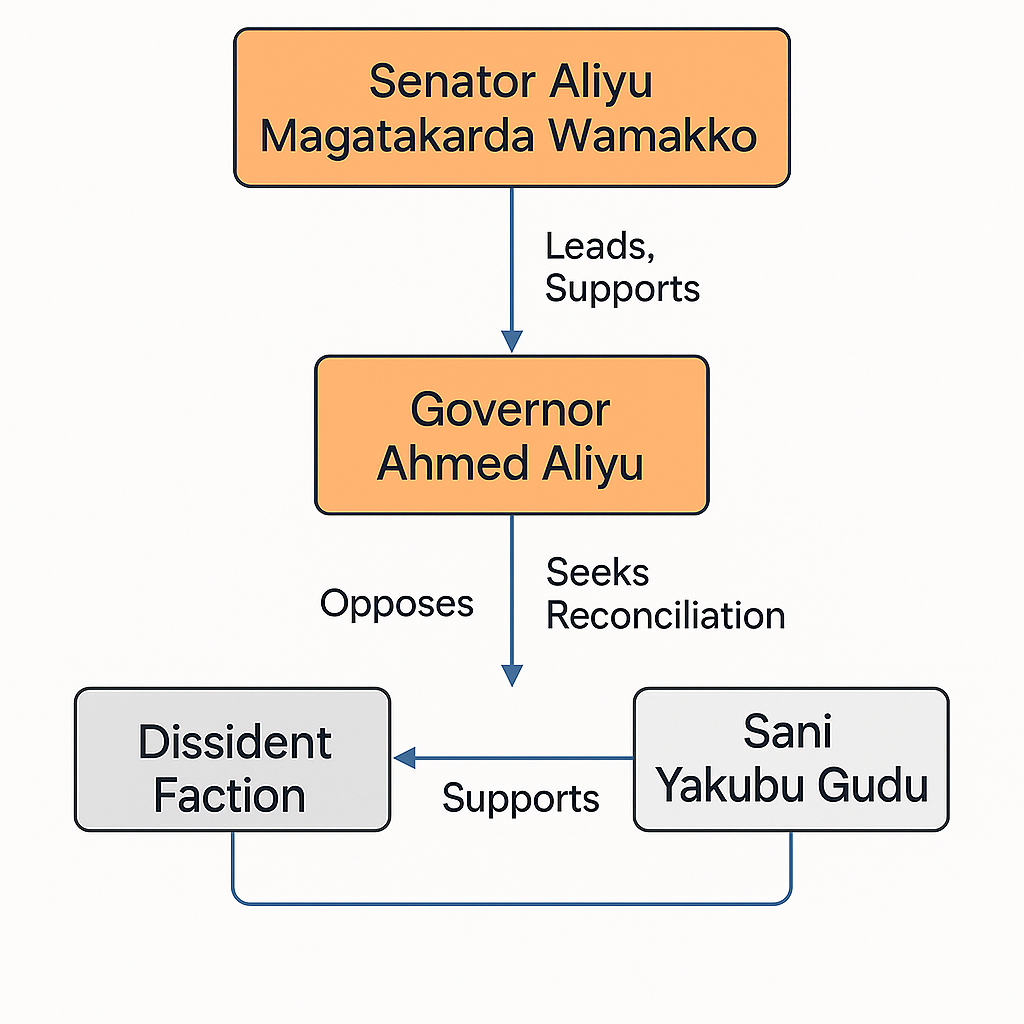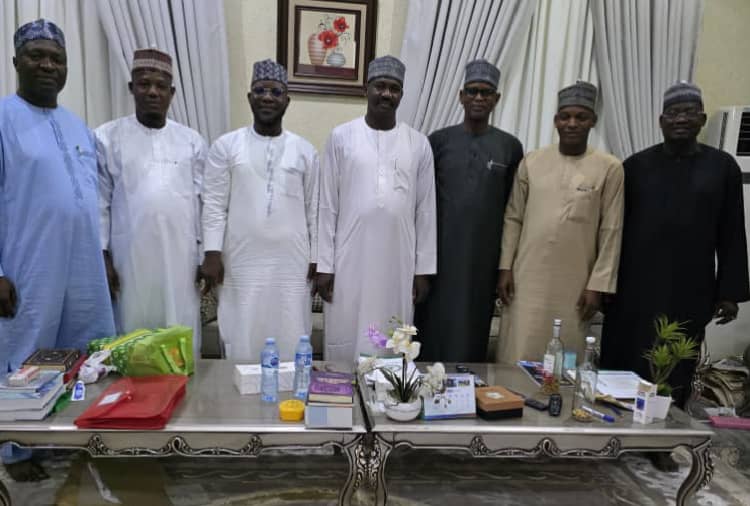The political landscape in Sokoto State is sharply defined by a legacy of loyalty, patronage, and factional realignments, often centered around Senator Aliyu Magatakarda Wamakko, a former governor and the undisputed leader of the All Progressives Congress (APC) in the state.
The recent move by a House of Representatives member, Sani Yakubu Gudu to seek forgiveness and rejoin the Wamakko-led faction of the APC is not just a personal act of contrition—it reflects a broader recalibration of power ahead of the 2027 general elections.
Wamakko as the political anchor
Senator Wamakko has maintained a firm grip on Sokoto’s APC structure since leaving office as governor in 2015. His influence stems from years of political grooming, strategic appointments, and the provision of political cover for numerous up-and-coming politicians. Many, like Sani Yakubu, owe their rise to Wamakko’s patronage. Yakubu’s public acknowledgment of this patron-client relationship underscores Wamakko’s enduring political relevance.
The cost of political defection
Yakubu’s temporary defection to an opposing camp within or adjacent to the APC was likely part of a miscalculated political gamble during a period of intra-party tension or ambition misalignment. However, Sokoto’s political culture is unforgiving to those who appear to betray their benefactors, particularly in a system where loyalty is traded for political capital and protection.

The public nature of Yakubu’s apology, complete with the symbolism of returning to Wamakko’s residence and invoking past assistance (including being rescued from bandits), was not merely emotional—it was strategic. It was a plea for re-acceptance not just from one man, but from an entire political machinery.
2027 elections and strategic realignment
As Nigeria inches toward the 2027 elections, political actors are already positioning themselves for nominations, endorsements, and power-sharing. In Sokoto, aligning with Wamakko remains one of the most viable paths to electoral relevance, especially in the APC.
Yakubu’s apology signals a wave of realignments that may follow—other previously estranged politicians may retrace their steps to avoid political isolation.
The fragility of internal party democracy
This episode highlights the limitations of internal democracy within Nigerian parties. Often, decisions are not made through institutional processes, but through deference to strong personalities like Wamakko. Loyalty is frequently rewarded over ideology or merit. While this might ensure short-term unity, it perpetuates a cycle where political survival depends more on allegiance than performance.
Implications for Governor Ahmed Aliyu’s leadership
Yakubu’s reference to the Governor shows deference to the current power alignment in Sokoto. However, it also points to a subtext: in Sokoto APC, Wamakko remains the ultimate kingmaker, even with Ahmed Aliyu in office. The governor’s success hinges significantly on his alignment with Wamakko’s political base.
Sani Yakubu’s apology is a case study in Sokoto’s patronage politics, a system where power flows through a central figure, and forgiveness is a political tool used to reabsorb prodigal actors into the fold. As 2027 draws closer, similar public reconciliations and strategic retreats are likely, particularly as politicians scramble to regain favour in a landscape where loyalty is currency and memory is long.


